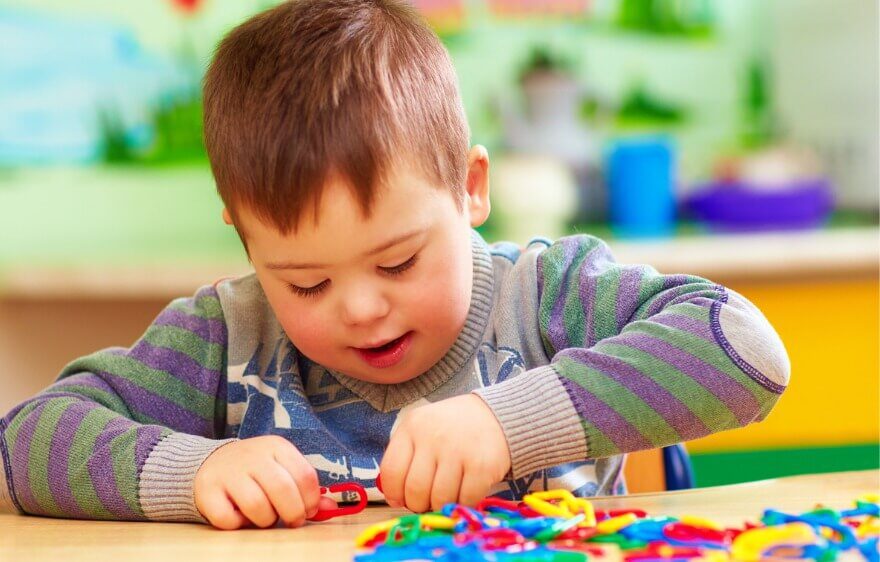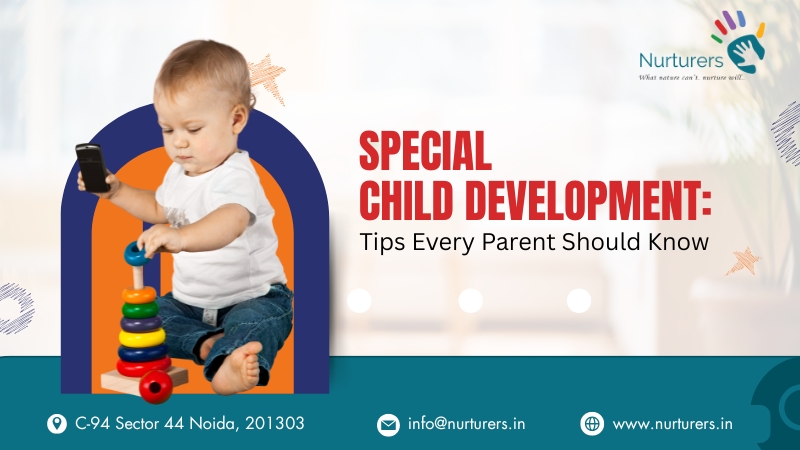Raising a child with special needs is a journey filled with both challenges and immense rewards. Each child develops at their own pace, and understanding their unique abilities and needs is essential for fostering growth. Parents play a vital role in creating a nurturing and supportive environment, encouraging independence, and implementing personalized learning strategies that cater to their child’s strengths.
Early intervention, the ability to identify a special needs child, regular therapy sessions, and collaboration with educators, therapists, and healthcare professionals can significantly enhance developmental outcomes. Focusing on areas such as language and communication, social skills, emotional regulation, and daily life skills empowers children to reach their full potential. By staying informed, patient, and proactive, parents can help their special child build confidence, achieve milestones, and lead a fulfilling life while strengthening the parent-child bond.
Understanding the Special Child Meaning
Parents often feel confused about terms like special child. Simply put, a special child is one who has unique developmental, learning, or behavioural needs. This may include:
- Autism Spectrum Disorder (ASD) – challenges in communication, social interaction, and repetitive behaviours associated with Autism Spectrum Disorder.
- Attention Deficit Hyperactivity Disorder (ADHD) – difficulties with attention, focus, and impulse control, commonly seen in children with ADHD.
- Speech and Language Delays – trouble expressing thoughts or understanding language.
- Learning Disabilities – challenges in reading, writing, or maths despite normal intelligence.
- Sensory Processing Differences – over- or under-sensitivity to sound, touch, or movement.
Understanding the special child meaning is important, not for labelling, but for identifying the right supports and resources.

The Importance of Early Assessment
Parents often wonder: Does assessment really make a difference? The answer is yes. Early assessments identify challenges before they become barriers to learning and social development. At Nurturers, our assessments cover:
- Speech and Language Skills – evaluating how well a child understands instructions, builds vocabulary, and articulates words.
- Motor Skills – examining balance, strength, handwriting readiness, and fine motor abilities like buttoning or using utensils.
- Behavioural Skills – observing emotional regulation, impulse control, attention span, and daily routines.
- Social Interaction – studying play behaviour, peer relationships, eye contact, and ability to share or take turns.
Assessments not only highlight challenges but also strengths, helping parents build on what a child already does well.

Creating a Predictable Routine
A predictable routine provides security and reduces anxiety. Tips for setting routines include:
- Use visual schedules with pictures for younger children.
- Give warnings before transitions (e.g., “5 more minutes of play, then dinner”).
- Keep bedtime and mealtime consistent.
- Allow flexibility for special events but prepare your child in advance.
A simple, structured day helps children focus and feel calmer.
Building Communication as the Core
Communication is a foundation skill for learning and social life. If speech is delayed, explore:
- Speech Therapy – helps children improve pronunciation, vocabulary, fluency, and sentence formation. Speech therapists also use play-based activities, songs, and repetition to make sessions engaging.
- Augmentative Communication Tools – picture cards, communication boards, specialised apps, or even simple sign language can help children express their needs while speech develops. These tools reduce frustration and encourage independence.
- Interactive Reading – instead of just reading aloud, pause at key moments, point to pictures, ask simple questions, and encourage your child to respond. This turns books into a two-way conversation.
- Daily Conversations – describe daily routines such as cooking, bathing, dressing, or travelling. For example: “We are washing your hands. Now the soap makes bubbles.” Narrating life builds word associations naturally.
- Play-Based Communication – use toys, pretend play, or games that require turn-taking. This helps children practise words and social skills together.
Always respond to your child’s attempts at communication, even if imperfect. This builds confidence and motivation.

Teaching Through Interests
Children learn best through what excites them. For example:
- If your child loves music, use rhymes to teach counting or colours.
- If fascinated by cars, use them to teach sorting, directions, or storytelling.
- If they enjoy drawing, encourage writing letters or numbers through art.
This method keeps learning fun and stress-free.
Creating a Supportive Environment at Home
Home plays a big role in development. Here’s how you can make it more supportive:
- Declutter learning areas to reduce distractions.
- Use calming colours and soft lighting.
- Create a quiet corner with cushions or sensory toys for breaks.
- Provide tools like fidget spinners, weighted lap pads, or textured toys for sensory regulation.
A comfortable environment reduces meltdowns and increases focus.
Reinforcing Positive Behaviour
Children repeat behaviours that bring positive responses. Some strategies include:
- Immediate Praise – “You shared your toy so nicely!”
- Reward Charts – stickers for completing tasks or following routines.
- Shaping Behaviour – break big tasks into smaller steps and celebrate each success.
- Consistency – everyone in the family should use the same rules and responses.
Positive reinforcement helps children feel motivated to learn new skills.
Partnering with Schools
Schools play a vital role in special child development. Parents should:
- Share assessment reports with teachers.
- Request an Individualised Education Plan (IEP) when needed.
- Communicate regularly with teachers about progress and concerns.
- Encourage inclusive classroom activities where peers support learning.
When parents and schools work together, children feel supported in every environment.

Extending Therapy into Daily Life
Therapy sessions are powerful, but everyday practice makes learning last. Examples include:
- During mealtime, encourage your child to request items using words or pictures.
- While getting dressed, practise buttoning and zipping for fine motor skills.
- On walks, name objects, count steps, or play “I spy.”
- During playtime, model social skills like taking turns or asking politely.
The more skills are practised naturally, the faster they become part of daily life.
Supporting Social Development
Social skills can be challenging for a special child, but they can be nurtured step by step:
- Begin with parallel play (playing side by side without direct interaction).
- Introduce turn-taking games like rolling a ball.
- Use role-play activities to practise greetings, asking for help, or sharing.
- Organise short, supervised playdates with calm peers.
Small, repeated successes build social confidence.
Caring for Yourself as a Parent
Raising a special child is fulfilling but can also feel overwhelming. Remember:
- Take short breaks to recharge.
- Join support groups for shared experiences.
- Ask family or friends to step in when you need rest.
- Practise self-care activities like reading, exercise, or meditation.
A balanced, calm parent is the best support system for a child.

How Nurturers Supports Special Child Development in Noida
At Nurturers, we specialise in guiding families on how to deal with special needs child challenges through:
- Speech and Language Therapy – improving vocabulary, fluency, and clarity.
- Occupational Therapy – building independence in dressing, writing, eating, and daily tasks.
- Behaviour Therapy – teaching emotional regulation and positive routines.
- Parent Training – giving families strategies for home and school.
- School Collaboration – helping teachers implement effective learning plans.
Our holistic approach ensures progress at home, in therapy sessions, and in classrooms.
Frequently Asked Questions
- What is a special child?
A special child is one with developmental, behavioural, or learning differences who benefits from personalised teaching and therapies. - How to deal with a special needs child at home?
Start with structure, short instructions, visual supports, and positive reinforcement. Be patient and consistent, and celebrate small milestones. - Why does early intervention matter?
The earlier a child receives support, the better the outcomes for communication, learning, and independence. - Can a special child attend a regular school?
Yes, many can, with the right accommodations such as modified lessons, extra time, and one-on-one support.
Final Thought
Raising a special child is not about fixing them—it’s about unlocking their potential and giving them tools to succeed. When you understand the special child meaning, you realise that challenges are just stepping stones toward growth. At Nurturers, we walk with families on this journey, helping them navigate challenges with confidence. Because at the end of the day, every child is special, and with love, patience, and the right support, every child can shine.

